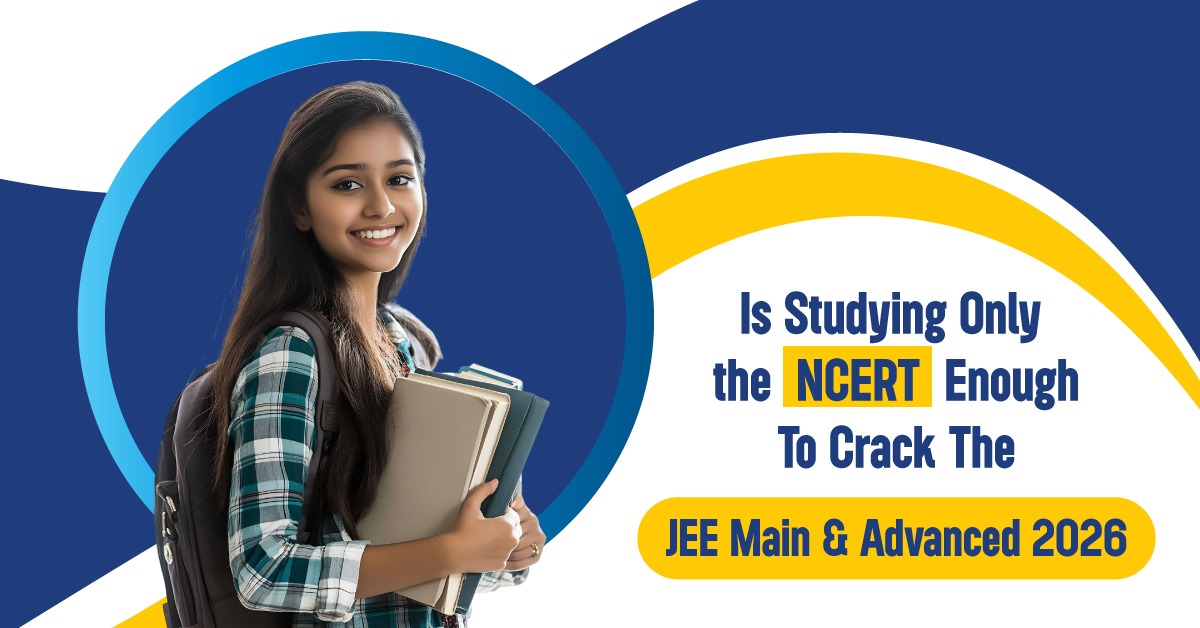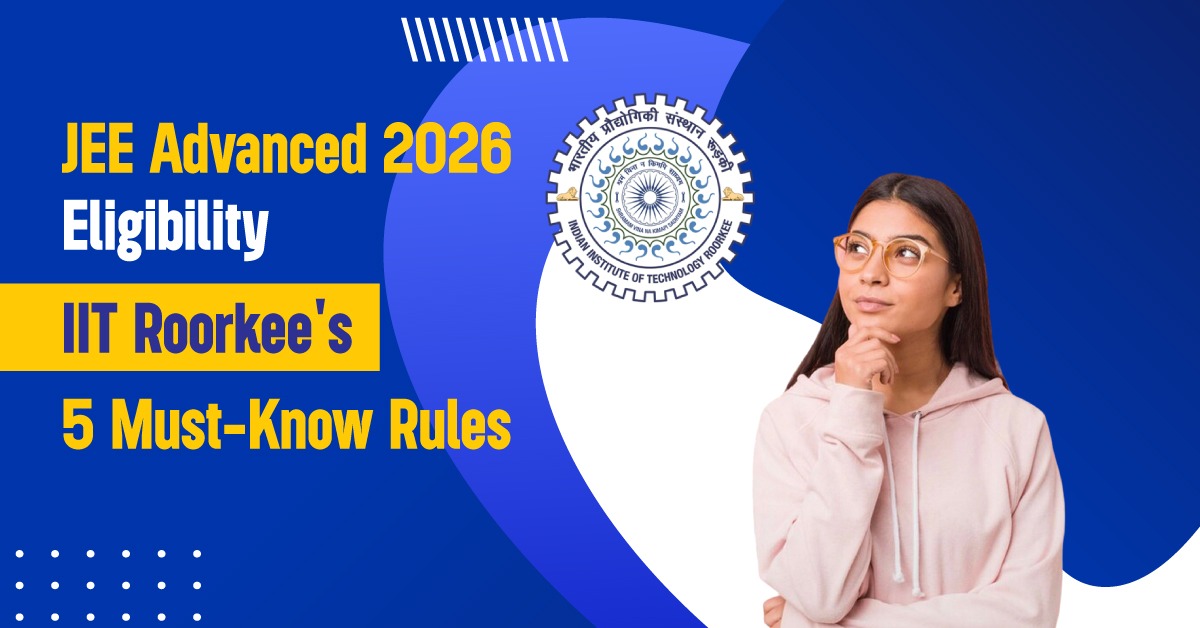
Yo, Future IITian! Let’s Settle This NCERT Thing Once and For All — Is NCERT Enough for JEE Main and Advanced?
Alright, sit down. Let’s have a real talk. No fluff, no coaching center marketing.
You’re in Class 11 or just starting 12, the JEE tsunami is on the horizon, and you’re drowning in the same advice from every direction: “Bhai, bas NCERT karle. Poori NCERT pakka karle.”
You nod, pick up your NCERT, solve a few exercises, and feel pretty good. Then you open a JEE Main paper or, god forbid, an Advanced paper. Your brain freezes. The questions look like they’re in a different language.
And you think: “Are they kidding me? Is this really enough? Is NCERT Enough for JEE Main and Advanced?”
Let me break it down for you, the way I wish someone had for me.
First, Why Does Everyone Keep Hammering NCERT?
Simple. Because it’s the truth and nothing but the truth. It’s the official syllabus. It’s the pure, unadulterated source. Think of it like this:
- It’s Your School Ground: You learn the basic rules of football here. You can’t show up for a national match without knowing how to dribble.
- JEE Mains Copies It (Seriously): Especially in Chemistry, they lift lines straight from the book. It’s like they’re daring you to have read page 247. Not knowing NCERT is leaving free marks on the table. Don’t be that person.
- It Keeps You Sane: When you’re confused by a fancy reference book, NCERT is your safe space. It brings you back to the simple, core idea.
The Real Scoop: JEE Mains vs. NCERT
The Verdict: NCERT is your best friend, but you need other friends too
Imagine you’re building the ultimate gaming PC. NCERT is your top-of-the-line CPU. It’s the brain. But you can’t run a game on just a CPU. You need a GPU (Graphics Card), RAM, etc. Those are your reference books.
Let’s get into the subjects:
- Physics: NCERT is your theory bible. It explains why F=ma. But JEE Mains doesn’t ask you to state F=ma. It gives you a pulley system on an inclined plane inside a moving elevator and asks for the tension. To practice this kind of application, you need a sidekick like HC Verma. It teaches you how to use physics, not just know it.
- Chemistry:
- Inorganic Chemistry: Stop. Listen carefully. For this section, NCERT is not just a book; it’s THE book. If you can memorize Classes 11 and 12 NCERT Inorganic like you memorized the lyrics to “Channa Mereya,” you can basically sleepwalk through this section in Mains. I’m not kidding.
- Organic Chemistry: NCERT gives you all the characters and the basic plot. But JEE Mains writes a crazy thriller with twists and turns. You need a book like MS Chouhan to practice how these characters (molecules) behave under unexpected conditions.
- Physical Chemistry: The concepts are crystal clear in NCERT. But the number of numericals? Not enough. You need to grind problems from an OP Tandon or N Avasthi to build the speed and accuracy for the exam.
- Maths: Okay, lean in close for this one. NCERT Maths for JEE is like using a bicycle to train for a Formula 1 race. The concepts are the same wheels, engine, steering, but the level is worlds apart. The problems in JEE are faster, trickier, and more complex. You absolutely, 100% need books like Cengage or Arihant to have a fighting chance.
Now, Let’s Talk About the Big Boss: JEE Advanced
For Advanced, let’s be brutally honest.
NCERT is just the first step. It’s the tutorial level.
JEE Advanced is designed to test your thinking, not just your memory. It takes the simple concepts from NCERT and asks, “Okay, but what if we do this?” It’s a test of your ingenuity.
- You’ll need I.E. Irodov for physics problems that will make you cry, but will also make you a genius.
- You’ll need JD Lee to understand the story behind Inorganic Chemistry, not just the facts.
- You’ll need advanced problem-solving books for Maths that teach you tricks you never knew existed.
Also read: JEE Main vs Advanced
So, What’s Your Actual Game Plan for 2026?
Don’t just read this and feel stressed. Here’s your to-do list, starting tomorrow:
- Your First Move is Always NCERT. For every new chapter, your first, second, and third reading is NCERT. Don’t even touch another book until you can solve every single example and in-text exercise on your own. Make short notes. Highlight important lines.
- Time to Level Up. Once NCERT is solid, pick up your reference book. Stuck on a monster problem? Don’t just look at the solution. Try to connect it back to a basic concept in your NCERT. This “connecting the dots” is the secret sauce.
- Get Your Hands Dirty with PYQs. This is the most important step. Once you finish a chapter, immediately solve the last 10 years’ JEE Mains questions for that chapter. This will show you exactly how the exam twists the basic concepts. It’s the ultimate reality check.
The Final Word
Stop asking “Is NCERT enough?” That’s the wrong question.
The right question is: “Is NCERT my solid foundation?”
If the answer is yes, then you’re ready to build a skyscraper on top of it with other books and practice.
If the answer is no, then you’re trying to build that skyscraper on sand, and it will collapse.
Your mantra is simple: “NCERT for concept, References for practice, PYQs for direction.”
You’ve got two years. That’s plenty of time. Don’t panic. Just start with Chapter 1.
Now go, open your Chemistry NCERT. I’ll wait







0 Comments